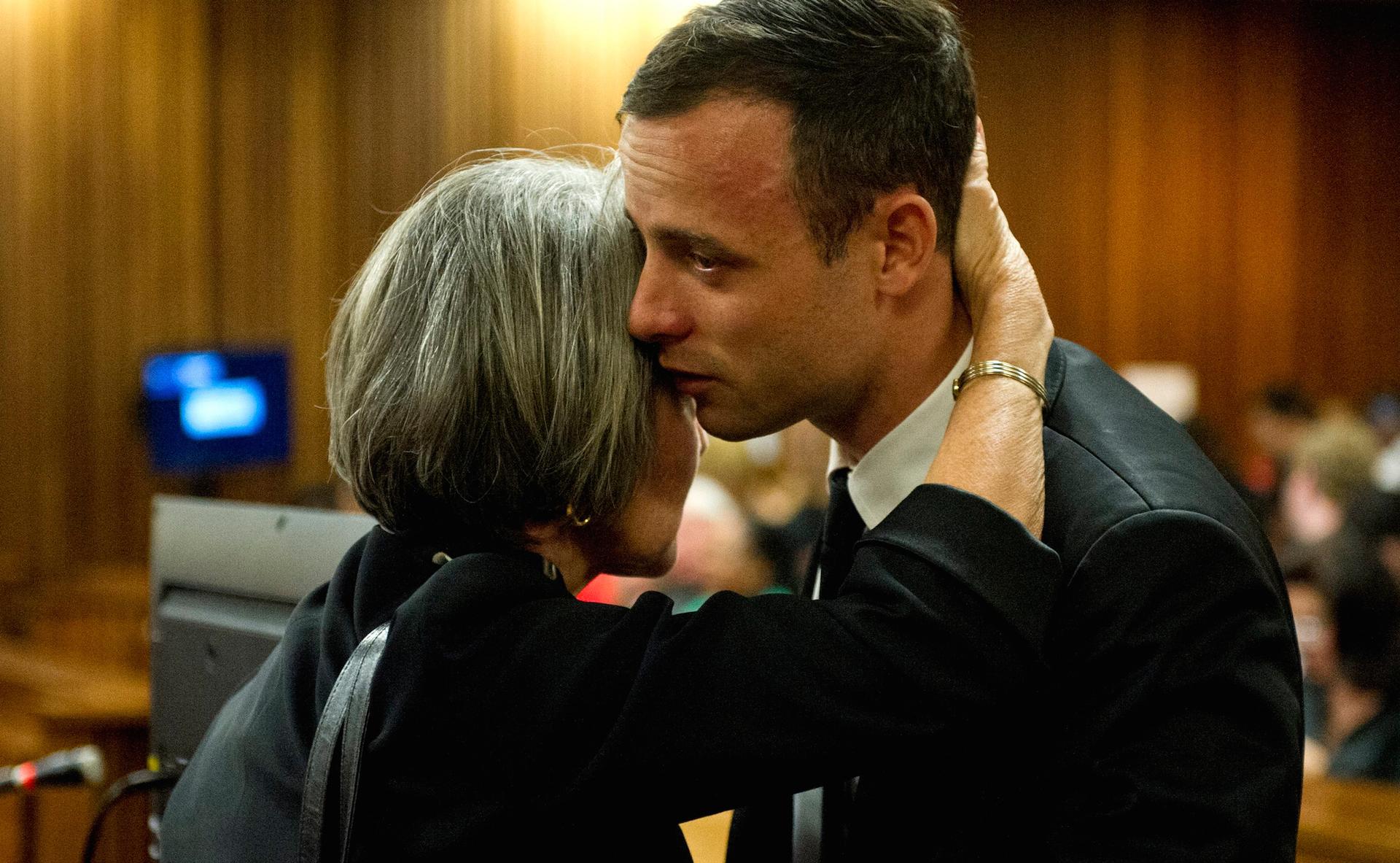Oscar Pistorius gives game-changing testimony
Oscar and Aimee Pistorius at the Pretoria High Court
Forget Oscar Pistorius the Olympic warrior, the trailblazing double-amputee sprinter, a blur of speed and strength.
Pistorius, who is on trial for the Valentine's Day murder of his girlfriend in 2013, took to the witness box Monday for the first time and in a high, shaky voice told the story of a scared and vulnerable boy growing up in South Africa.
His lawyer Barry Roux led him, in the questioning, through his early years as a child whose malformed legs were amputated shortly after birth. Pistorius spoke of his absentee father and his anguish after his beloved mother fell ill and died when he was just 15 years old and at boarding school.
He spoke of finding salvation through sport and of the challenges in forging a new path as a disabled athlete competing against able-bodied runners. But the dominant narrative in this version of Pistorius's life story is of a man who was terrified of crime.
His childhood home was in "not the best of suburbs" and was broken into "many times," Pistorius told the court. His mother, fearing for her family's security, slept with a gun under her pillow.
Pistorius told of his father being carjacked twice, and of how he himself had been followed more than once. He spoke of general crime in South Africa and of intervening to help an injured taxi driver after a brick-throwing incident between motorists. He spoke of his dogs — a Jack Russell, a bull terrier, and later an American pit bull — which he got after attempted break-ins at his house.
Pistorius also spoke of religion and the Christian faith he shared with Steenkamp. He told the court that his god is a "God of refuge," and that prayer got him through the last year since Steenkamp's death.
From the stand he apologized to the Steenkamp family — Reeva's mother June was in court — saying that not a moment had gone by without his thinking of their loss.
Pistorius has admitted to shooting and killing Reeva Steenkamp, a model and law graduate, in the early hours of February 14, 2013.
Pistorius's testimony is meant to establish the crucial point of mens rea — the mental element of the crime: In the English legal tradition South Africa has partly inherited, whether or not the individual intended to commit the crime matters in determining his guilt. In this case, Pistorius is arguing that he acted out of fear, thinking there was an intruder in the house, and didn't intend to kill Steenkamp.
For Judge Thokozile Masipa, the question will be how much weight to give Pistorius's testimony. It is only one factor in a broad case that includes neighbor witnesses and expert testimony.
The trial restarted Monday after a break of more than a week due to one of the judge's two assessors falling ill. In South Africa, where there's no jury system, expert assessors sometimes advise judges on evidence.
The story you just read is accessible and free to all because thousands of listeners and readers contribute to our nonprofit newsroom. We go deep to bring you the human-centered international reporting that you know you can trust. To do this work and to do it well, we rely on the support of our listeners. If you appreciated our coverage this year, if there was a story that made you pause or a song that moved you, would you consider making a gift to sustain our work through 2024 and beyond?
